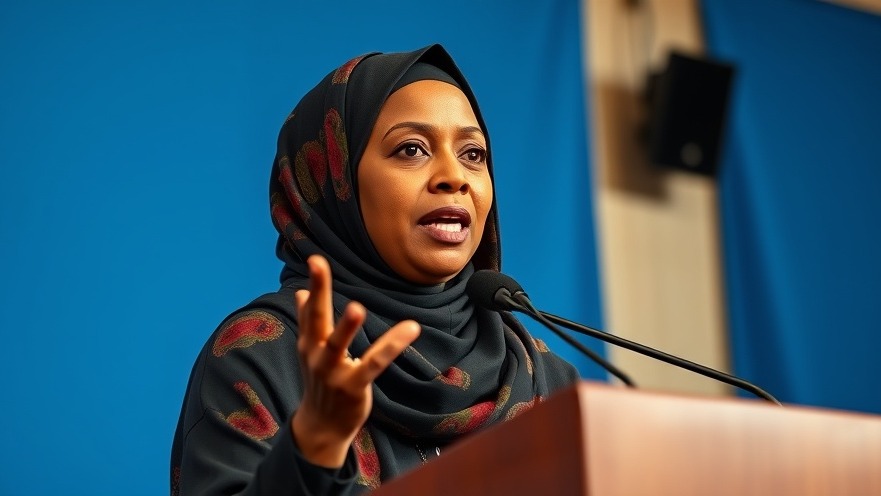
Understanding the Controversy Surrounding Ilhan Omar
Ilhan Omar, a prominent figure in the Democratic Party, is currently under fire as her committee assignments come under threat following remarks she made about Charlie Kirk, a controversial conservative activist. The backlash against Omar intensified after the tragic assassination of Kirk, raising questions about the implications of her comments and the broader political context of free speech versus violence.
The Backlash and Its Roots
The resolution introduced by Rep. Buddy Carter places Omar in a spotlight of scrutiny. Carter claims that the 'radical left has normalized meeting free speech with violence,' a statement that signals the growing divide in political discourse. The assassination has sparked a national conversation about rhetoric and how it can influence actions, painting Omar’s remarks in a particularly harsh light as the country navigates the complexities of political tensions.
What Does This Mean for Political Discourse?
This situation highlights a crucial moment in American politics, where the boundaries of free speech are being tested. With high-profile incidents like the assassination of Kirk, the fear is that incendiary comments could escalate conflict and embolden extremists. This places both conservative and liberal voices in precarious positions, where the power of words can lead to serious consequences. The call for accountability in political statements is growing louder, but it also raises concerns around censorship and the potential chilling effect on open dialogue.
Future Predictions on Political Speech
Looking forward, one has to wonder how this event will shape future interactions among politicians and the public at large. Will we see a more cautious approach to political speech for fear of backlash? Or will politicians continue to push boundaries, emboldened by their supporters? The ongoing debate will likely lead to further clarifications of what constitutes acceptable political discourse in the current climate.
The Diverse Perspectives on Accountability
This incident also exhibits the need to explore counterarguments regarding accountability. While some support the resolution against Omar, others argue that this is an attack on free speech. Advocates for the latter view believe that holding individuals accountable for their rhetoric can lead to silencing dissenting voices in the political sphere. Thus, a balance must be struck between responsibility for one’s words and the right to express them without fear of reprisal.
Public Sentiment and Reactions
The public reaction to Omar's comments and the associated resolution has been mixed, reflecting a deeply divided electorate. Some see the action as justified, believing that legislators should be held to a higher standard. In contrast, others fear the implications of equating speech with violence, concerned that it suppresses critical conversations about political ideologies and societal issues.
Engaging with the News: What Can You Do?
As the political landscape continues to evolve, staying informed and engaged is essential. Understanding the complexities of free speech, political accountability, and violence in rhetoric can empower citizens to partake in meaningful conversations and advocate for nuanced approaches to these pressing issues. Engaging with your representatives and participating in community discussions can be an effective way to address concerns surrounding political speech.
For more on the intricate relationship between free speech and political discourse, explore news articles that provide in-depth analysis and various viewpoints on the matter. Such engagement not only broadens your perspective but also fosters a healthier democratic process, allowing for dialogue rather than conflict.
 Add Element
Add Element  Add Row
Add Row 



Write A Comment